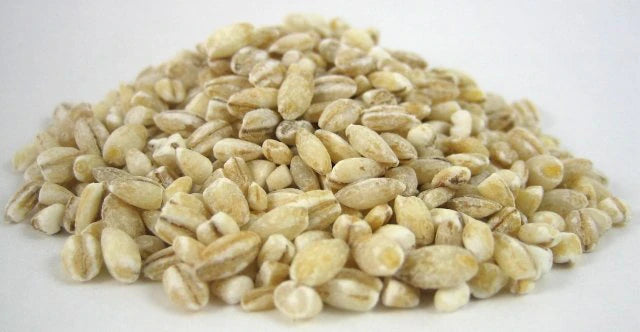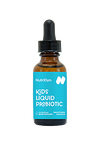Whole Grain to Eat to Decrease High Blood Sugar
- News
- 26 Dec, 2023
- Whole Grains and Diabetes
- The #1 Whole Grain
- Important conclusions.
There are a lot of rules when it comes to managing a chronic disease like high blood pressure or diabetes. Should you avoid all carbs. While carbs do raise your blood sugar levels, not all foods with carbs affect the body the same way. In fact, experts agree that you can (and should) eat carbs when you have diabetes.
Carbohydrate foods' unique sugar, starch and fiber content drives your body’s response. Refined carbs (think baked goods, pasta and white bread) are generally lower in fiber and higher in sugar. Since they are easily digested, glucose rushes into your bloodstream. Eating a lot of refined carbohydrates can send your blood sugar on a roller coaster and can lead to dangerous diabetes complications over time. On the other hand, complex carbohydrates like whole grains, fruits, vegetables and legumes have the opposite effect. Thanks to their fiber content, digestion takes longer, so glucose enters the bloodstream gradually rather than all at once.
Is there a relationship Between Whole Grains and Diabetes?
A “whole” grain still contains all the parts of the plant—the bran, germ and endosperm. By consuming the grain whole, you reap the benefits of all the nutrients packed inside, like fiber, antioxidants, B vitamins and healthy fats. This combination of nutrients makes whole grains such a boon for disease prevention. In fact, a large study from 2020 published in the British Medical Journal that included data from almost 200,000 individuals found that people who ate whole grains had a 29% lower risk of developing diabetes than those who rarely ate them.
Plus, the digestion-slowing effects of fiber aren’t the only reason whole grains are a blood sugar superhero. A small 2019 study from Molecular Nutrition & Food Research found that when participants were eating a whole-grains-based diet, their beta cell function (the cells that secrete insulin) was better than when they were on the refined-grain diet. When more insulin is available, your cells have more access to the glucose in your bloodstream for energy.
Why Barley Is Great for Lowering High Blood Sugar
Barley has a similar nutrition profile to oats, which research shows may help manage your weight, lower blood pressure and improve blood sugar. Pearled barley has been partially refined, so choose whole-grain barley when possible since it will digest more slowly. For example the USDA, 1 cup (157 grams) of cooked pearled barley provides:
- Calories: 193
- Total carbohydrates: 44g
- Dietary fiber: 6g
- Added sugar: 0g
- Protein: 4g
- Total fat: <1g
- Saturated fat: 0g
- Cholesterol: 0mg
- Sodium: 5mg
- Potassium: 146 mg
- Phosphorus: 85mg
- Magnesium: 35mg
Rich in Soluble Fiber
There are two types of dietary fiber—soluble and insoluble—and barley offers both. Soluble fiber is particularly beneficial for blood sugar management. According to a 2020 review in Nutrients, soluble fiber helps lower blood sugar in two ways: 1) by forming a thick gel in the digestive tract so less glucose can be absorbed, and 2) by slowing down digestion, preventing spikes in blood sugar.
Source of Antioxidants
Chronic inflammation and diabetes have a complicated relationship. There’s evidence that chronic inflammation can increase one's risk of developing diabetes, but on the flip side, inflammation is also a complication of diabetes. Incorporating foods rich in antioxidants (like whole grains) can help neutralize the free radicals to blame for chronic inflammation. Barley is rich in phytochemicals like phenolic acid, flavonoids, phytosterols and tocols (a form of vitamin E), all of which fight oxidative stress, per a 2020 article from Nutrients.
Barley is a budget-friendly pantry staple that can be used in a variety of dishes, from soups to salads. Amp up the fiber content of your soup by combining barley with beans—this Bean & Barley Soup has a whopping 12 grams of fiber per serving. You can also incorporate more fiber into classic soup recipes by swapping noodles for barley; try our Instant Pot Chicken Soup with Root Vegetables & Barley. This grain’s chewy texture and mild flavor also make it a great option for grain-based salads like our Roasted Beet & Barley Salad.
Carbs don’t have to be the bad guy when you have diabetes. In fact, they can help you manage your condition. Working closely with your health care provider and dietitian can help determine how many carbs you should eat daily. Prioritizing fiber-rich carbohydrates like fruits, vegetables, whole grains and legumes is a solid strategy for lowering blood sugars. Whole grains, like barley, are not only packed with fiber but also offer essential nutrients that support optimal blood sugar control and overall health.
No literature or Web Searches:
www.drdirect4u.com, Dr-Direct2U, LLC, and its representatives do not conduct searches of the medical literature or of information contained on the World Wide Web for persons accessing this site and requesting such searches.
The information posted here at DrDirect4u.com, Dr-Direct2U, LLC, and its representatives should not be considered medical advice and is not intended to replace consultation with a qualified health care practitioner. www.drdirect4u.com, Dr-Direct2U, LLC, and its representatives will not answer specific medical questions or refer people to a particular health care professional.













